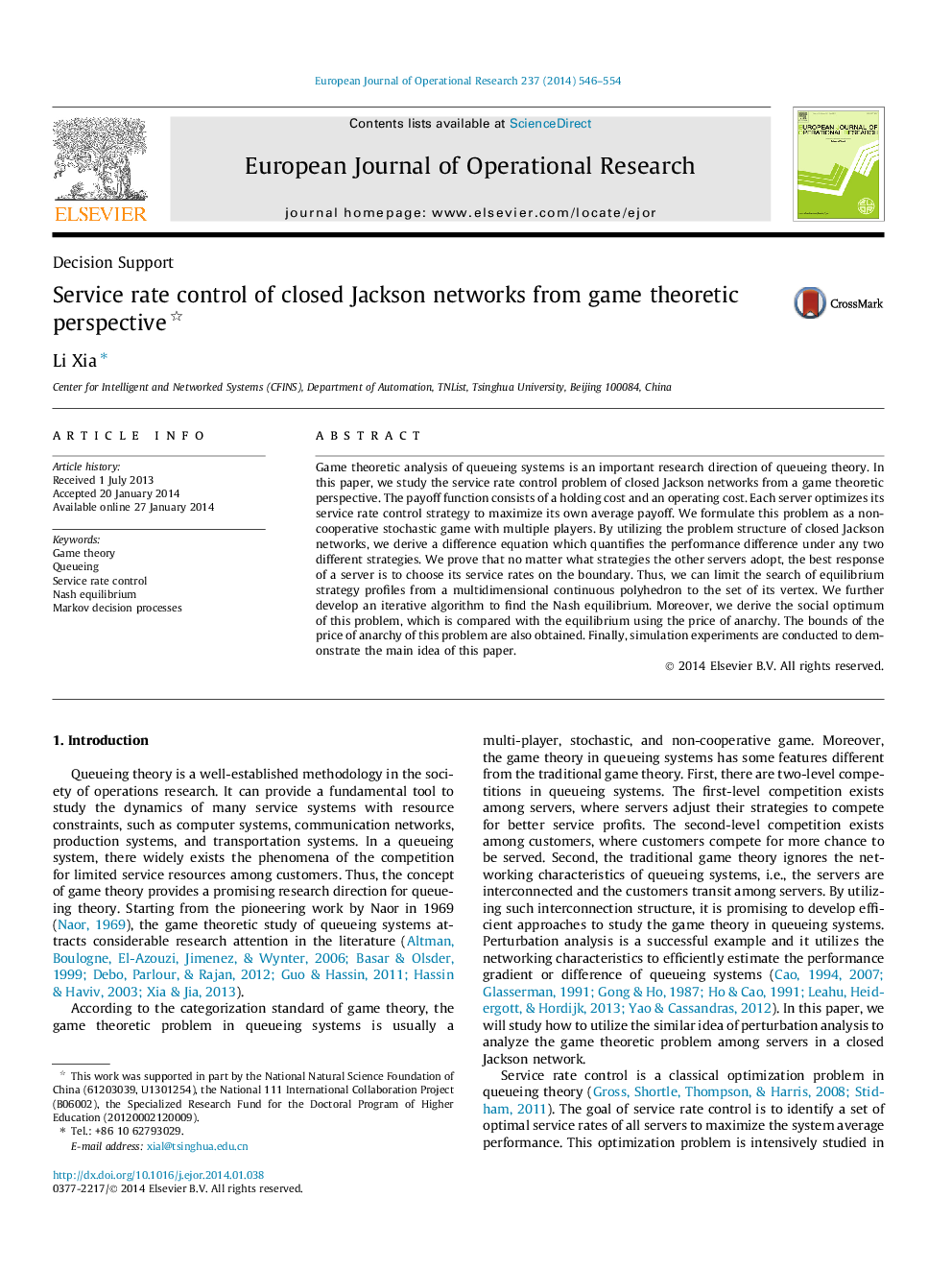| Article ID | Journal | Published Year | Pages | File Type |
|---|---|---|---|---|
| 478141 | European Journal of Operational Research | 2014 | 9 Pages |
•Game theoretic control of service rates of closed Jackson networks.•Best response of each server is to choose its serice rates on the boundary.•Comparison of the Nash equilibrium and the social optimum.•Bounds and special values of the price of anarchy are obtained.•Iterative algorithm to find the equilibrium under proper conditions.
Game theoretic analysis of queueing systems is an important research direction of queueing theory. In this paper, we study the service rate control problem of closed Jackson networks from a game theoretic perspective. The payoff function consists of a holding cost and an operating cost. Each server optimizes its service rate control strategy to maximize its own average payoff. We formulate this problem as a non-cooperative stochastic game with multiple players. By utilizing the problem structure of closed Jackson networks, we derive a difference equation which quantifies the performance difference under any two different strategies. We prove that no matter what strategies the other servers adopt, the best response of a server is to choose its service rates on the boundary. Thus, we can limit the search of equilibrium strategy profiles from a multidimensional continuous polyhedron to the set of its vertex. We further develop an iterative algorithm to find the Nash equilibrium. Moreover, we derive the social optimum of this problem, which is compared with the equilibrium using the price of anarchy. The bounds of the price of anarchy of this problem are also obtained. Finally, simulation experiments are conducted to demonstrate the main idea of this paper.
